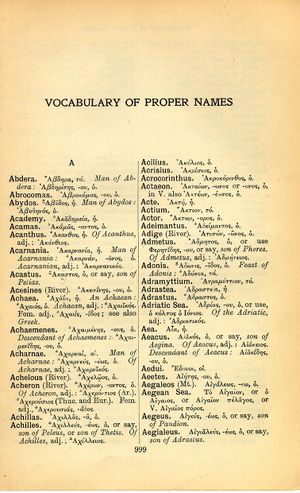Adrastea
ὥσπερ γὰρ ζώου τῶν ὄψεων ἀφαιρεθεισῶν ἀχρειοῦται τὸ ὅλον, οὕτως ἐξ ἱστορίας ἀναιρεθείσης τῆς ἀληθείας τὸ καταλειπόμενον αὐτῆς ἀνωφελὲς γίνεται διήγημα → for just as a living creature which has lost its eyesight is wholly incapacitated, so if history is stripped of her truth all that is left is but an idle tale | for, just as closed eyes make the rest of an animal useless, what is left from a history blind to the truth is just a pointless tale
English > Greek (Woodhouse)
Ἀδραστεία, ἡ.
Latin > English (Lewis & Short)
Ā̆drastēa: or Ā̆drastīa, ae, f., = Ἀδράστεια>.
I The daughter of Jupiter and Necessity (so called from an altar erected to her by Adrastus), the goddess who rewards men for their deeds, and who esp. punishes pride and arrogance: quod nec sinit Adrastea, Verg. Cir. 239: ineffugibilis, App. de Mund. p. 75; Amm. 14, 11.—
II A city of Mysia, later called Parium, Plin. 5, 32, 40, § 141; Just. 11, 6, 10.

